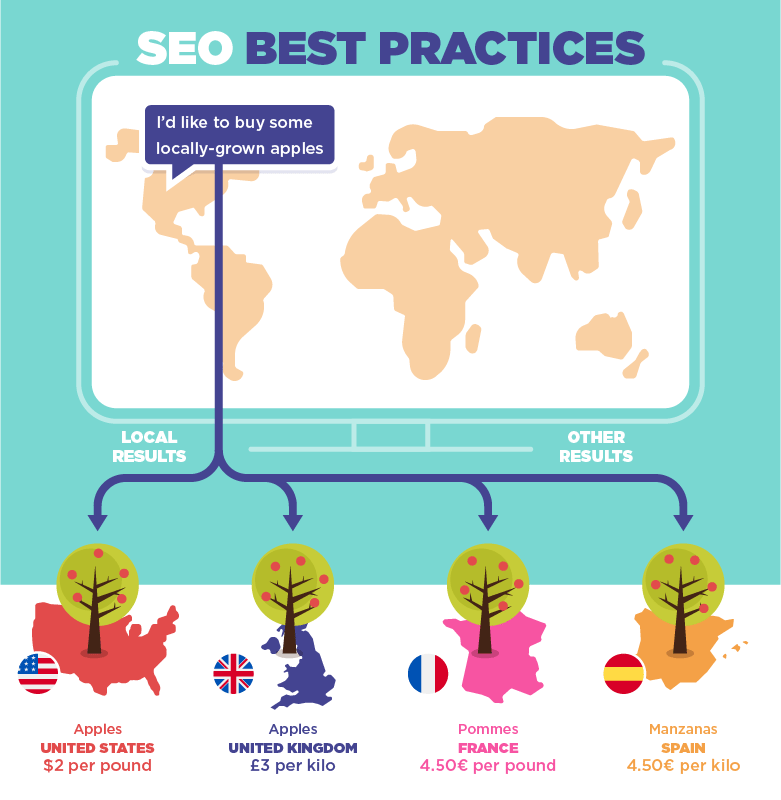Navigating the Digital Landscape: Leveraging International Search Engine Optimization for Cross-Border Success
In today's interconnected electronic globe, organizations are increasingly looking past borders to touch right into global markets. Leveraging search engine optimization (SEARCH ENGINE OPTIMIZATION) approaches tailored for global audiences is critical for accomplishing cross-border success. The intricacy of navigating the electronic landscape on an international scale demands a nuanced technique, from understanding the fundamentals of International search engine optimization to carrying out geotargeting and multilingual search phrase techniques. As firms make every effort to expand their reach and visibility across different territories, optimizing site structures and monitoring cross-border performance become vital parts of an effective global SEO technique.
Comprehending International SEO Principles
Navigating the details of worldwide SEO calls for a strong understanding of fundamental principles to efficiently increase online presence across borders. One essential element of international search engine optimization is recognizing the relevance of localization. This entails tailoring internet site material to suit the etymological, cultural, and business differences of target audience. Keywords have to be not only converted yet also adjusted to reflect how customers in different areas look for details.
Additionally, having a clear understanding of geo-targeting is necessary. This entails suggesting to internet search engine the specific countries or regions an internet site is targeting. Carrying out hreflang tags is one way to interact this details, ensuring that the appropriate variation of a website shows up in the search engine result for a user in a certain location.
In addition, understanding the influence of neighborhood search engines and social media sites systems is important for worldwide search engine optimization success. While Google is leading in numerous regions, countries like China have their own search engines like Baidu, needing tailored approaches for each system to optimize on-line presence (International SEO).

Targeting Multilingual Key Phrase Methods
Developing multilingual keyword approaches is necessary for properly getting to varied international target markets and making best use of on the internet presence throughout various linguistic areas. When targeting multilingual key phrase methods, it is important to perform comprehensive study to comprehend the particular search terms and expressions made use of by the target market in each etymological area. This involves not only equating keywords however additionally considering cultural subtleties, local languages, and search trends special to each target market.
To develop an effective multilingual keyword method, it is very important to focus on relevance and search intent. Key words need to straighten with the content on the website and reverberate with the social context of the target market. Utilizing devices such as Google Keyword Phrase Organizer, SEMrush, or Ahrefs can aid recognize high-performing search phrases in various languages and evaluate their search volume and competition level.
Additionally, tracking and analyzing the performance of multilingual key words regularly is crucial for enhancing and refining the strategy with time. By continually adjusting to changes in search behavior and trends, businesses can improve their online visibility and attract even more global web traffic to their internet sites.
Carrying Out Geotargeting and Hreflang Tags
When aiming to enhance international search engine optimization approaches, integrating geotargeting and hreflang tags is critical for maximizing web site visibility throughout various areas. Geotargeting involves tailoring content to specific areas, making certain that individuals in different locations get pertinent information. By implementing geotargeting, businesses can enhance their neighborhood search positions and attract region-specific website traffic.

Optimizing Site Framework for Worldwide Visibility
To further enhance global SEO strategies beyond geotargeting and hreflang tags, optimizing the internet site structure is crucial for achieving global visibility and maximizing reach throughout various regions. A well-structured web site not only enhances customer experience yet also helps with search engine crawlers in understanding the content and context of the website.
Moreover, developing language-specific subdirectories or subdomains can help browse engines supply the right variation of the website to individuals based on their language preferences, better enhancing the general individual experience. In addition, enhancing link frameworks to include pertinent keyword phrases and geotargeted terms can improve the site's exposure in different areas. By structuring the site properly for global audiences, companies can raise their chances of attracting international traffic and broadening their reach throughout boundaries.

Tracking and Examining Cross-Border Performance
Efficient monitoring and analyzing of cross-border efficiency is essential for reviewing the success of worldwide search engine optimization approaches and determining opportunities for enhancement in global reach and presence. By carefully tracking key efficiency indicators (KPIs) throughout various markets, services can acquire important understandings right into the efficiency of their cross-border search engine optimization efforts. Checking metrics such as organic traffic, additional info keyword rankings, site web conversion rates, and bounce prices can provide an extensive sight of how well a web site is carrying out in different regions.
Examining cross-border efficiency data allows businesses to determine fads, patterns, and areas for optimization. By comparing efficiency across different countries, regions, or languages, business can pinpoint effective strategies and localize content to better satisfy certain target market. Additionally, checking cross-border efficiency enables companies to remain active and responsive in the ever-evolving electronic landscape. Normal evaluation of search engine optimization efficiency on a worldwide scale guarantees that companies can adapt their strategies swiftly to capitalize on emerging opportunities and maintain an affordable edge in worldwide markets.
Verdict
In verdict, international search engine optimization plays an essential role in attaining cross-border success by enhancing websites for global presence, targeting multilingual search phrase approaches, carrying out geotargeting and hreflang tags, and keeping track of cross-border performance. By comprehending the fundamentals of global search engine optimization and maximizing web site frameworks appropriately, companies can effectively get to and engage with their target audiences across different regions and languages. This calculated method is important for broadening market reach and driving on the Our site internet growth in today's electronic landscape.